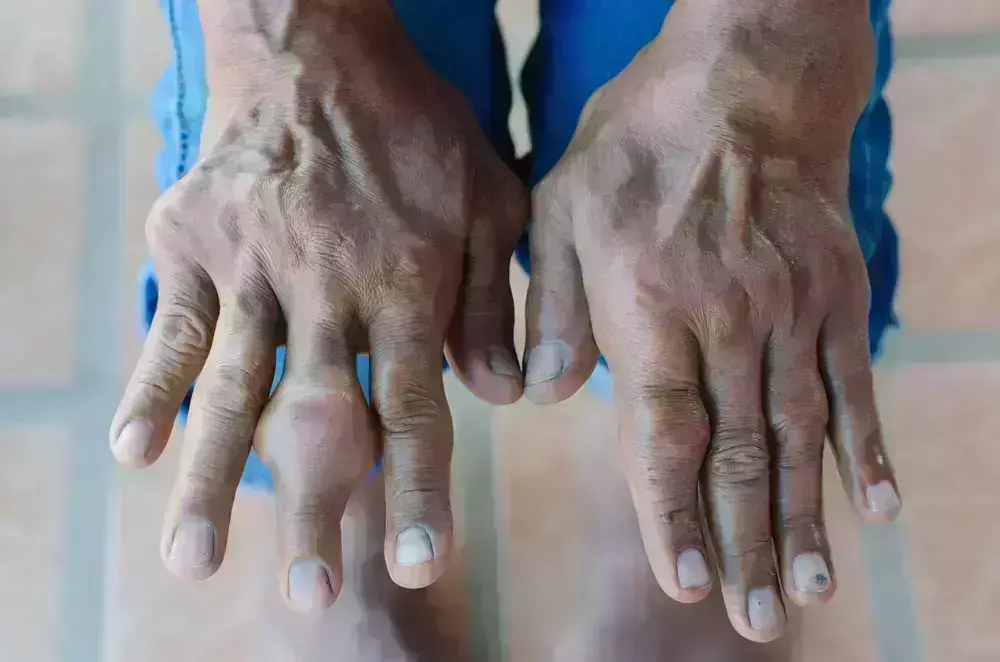- Home
- Medical news & Guidelines
- Anesthesiology
- Cardiology and CTVS
- Critical Care
- Dentistry
- Dermatology
- Diabetes and Endocrinology
- ENT
- Gastroenterology
- Medicine
- Nephrology
- Neurology
- Obstretics-Gynaecology
- Oncology
- Ophthalmology
- Orthopaedics
- Pediatrics-Neonatology
- Psychiatry
- Pulmonology
- Radiology
- Surgery
- Urology
- Laboratory Medicine
- Diet
- Nursing
- Paramedical
- Physiotherapy
- Health news
- Fact Check
- Bone Health Fact Check
- Brain Health Fact Check
- Cancer Related Fact Check
- Child Care Fact Check
- Dental and oral health fact check
- Diabetes and metabolic health fact check
- Diet and Nutrition Fact Check
- Eye and ENT Care Fact Check
- Fitness fact check
- Gut health fact check
- Heart health fact check
- Kidney health fact check
- Medical education fact check
- Men's health fact check
- Respiratory fact check
- Skin and hair care fact check
- Vaccine and Immunization fact check
- Women's health fact check
- AYUSH
- State News
- Andaman and Nicobar Islands
- Andhra Pradesh
- Arunachal Pradesh
- Assam
- Bihar
- Chandigarh
- Chattisgarh
- Dadra and Nagar Haveli
- Daman and Diu
- Delhi
- Goa
- Gujarat
- Haryana
- Himachal Pradesh
- Jammu & Kashmir
- Jharkhand
- Karnataka
- Kerala
- Ladakh
- Lakshadweep
- Madhya Pradesh
- Maharashtra
- Manipur
- Meghalaya
- Mizoram
- Nagaland
- Odisha
- Puducherry
- Punjab
- Rajasthan
- Sikkim
- Tamil Nadu
- Telangana
- Tripura
- Uttar Pradesh
- Uttrakhand
- West Bengal
- Medical Education
- Industry
Self monitoring of blood urate improves adherence to gout medicines: Study

Self-monitoring of blood urea improves adherence to gout medicines suggests a study published in the Health Expectations.
Gout management remains suboptimal despite safe and effective urate‐lowering therapy. Self‐monitoring of urate may improve gout management, however, the acceptability of urate self‐monitoring by people with gout is unknown. The aim of this study was to explore the experiences of urate self‐monitoring in people with gout. Semistructured interviews were conducted with people taking urate‐lowering therapy (N = 30) in a 12‐month trial of urate self‐monitoring in rural and urban Australia. Interviews covered the experience of monitoring and its effect on gout self‐management. Deidentified transcripts were analysed thematically. Results: Participants valued the ability to self‐monitor and gain more understanding of urate control compared with the annual monitoring ordered by their doctors. Participants indicated that self‐monitoring at home was easy, convenient and informed gout self‐management behaviours such as dietary modifications, hydration, exercise and medication routines.
Many participants self‐monitored to understand urate concentration changes in response to feeling a gout flare was imminent or whether their behaviours, for example, alcohol intake, increased the risk of a gout flare. Urate concentrations were shared with doctors mainly when they were above target to seek management support, and this led to allopurinol dose increases in some cases. Urate self‐monitoring was viewed by people with gout as convenient and useful for independent management of gout. They believed self‐monitoring achieved better gout control with a less restricted lifestyle. Urate data was shared with doctors at the patient's discretion and helped inform clinical decisions, such as allopurinol dose changes. Further research on implementing urate self‐monitoring in routine care would enable an evaluation of its impact on medication adherence and clinical outcomes, as well as inform gout management guidelines.
Reference:
Michael TJF, Chan JS, Hughes S, et al. The experiences and perspectives of people with gout on urate self-monitoring. Health Expect. 2024;27(3):e14071. doi:10.1111/hex.14071
Dr. Shravani Dali has completed her BDS from Pravara institute of medical sciences, loni. Following which she extensively worked in the healthcare sector for 2+ years. She has been actively involved in writing blogs in field of health and wellness. Currently she is pursuing her Masters of public health-health administration from Tata institute of social sciences. She can be contacted at editorial@medicaldialogues.in.
Dr Kamal Kant Kohli-MBBS, DTCD- a chest specialist with more than 30 years of practice and a flair for writing clinical articles, Dr Kamal Kant Kohli joined Medical Dialogues as a Chief Editor of Medical News. Besides writing articles, as an editor, he proofreads and verifies all the medical content published on Medical Dialogues including those coming from journals, studies,medical conferences,guidelines etc. Email: drkohli@medicaldialogues.in. Contact no. 011-43720751


